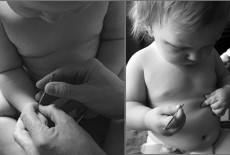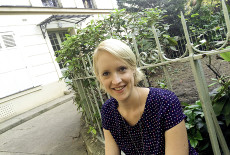Get a Good Night’s Sleep

When’s the last time you did?
Sleeping isn’t always easy. Fifty per cent of adults have sleep difficulties, 30 per cent deal with brief spells of insomnia, and 20 per cent suffer from “short-term” insomnia, meaning three months or less. I generally sleep well but I have the occasional off night when the mental chatter doesn’t want to subside. One night is tolerable but on the second night my energy plummets and I’m not a happy camper. Worse, it shows in my face—drawn, pale skin, dark circles under the eyes, not my best look. Is that a bit vain? Perhaps, but we live in the beauty capital of the world. When I go out, I want to strut with the gorgeous French women. Bien sûr!
The not-so-secret secret
Fortunately, I’ve got a trick up my sleeve, well not a trick but a solution—a little thing called acupuncture. Acupuncture has been diagnosing problems for at least 3000 years, and it has plenty to say about making shut-eye happen. There are different patterns of insomnia but here are some of the common ones:
- Wake up often at night: Yin deficiency
- Waking between 1am-3am: Liver imbalance
- Difficulty falling asleep or insomnia with anxiety: Blood deficiency
- Disturbing dreams: Fire in the Liver or Heart
- Wake up early and can’t fall back asleep: Gall Bladder deficiency
- Night sweats: Heart or Kidney deficiency
- Restless sleep and excessive dreams: food retention
For brief spells of insomnia nothing beats an acupuncture session or two. Patients consistently report they sleep great the night of the treatment even when that’s not their chief complaint.
Take “short-term” insomnia. (Isn’t that a terrible name? Three months of poor sleep doesn’t seem short to anyone.) I recently had a patient come in for that. He had left his job, was having marriage troubles and needed to figure out a new direction for employment and his relationship. With all that upheaval his mind wasn’t turning off at night. We talked about stress management strategies and he embarked on a series of acupuncture treatments. Last week he cancelled his final appointment because everything was going fine. That’s a happy ending in my book!
As people who suffer from long-term insomnia know it’s not easy to treat. But some kinds of long-term insomnia respond well to acupuncture. A patient came in looking to balance her hormones for fertility. When we came to the sleep question on the intake form she had an interesting story—she had always been a good sleeper until a death in the family. Then it was hard to stay asleep, she had disturbing dreams, etc. Even though almost a year had passed and she was stable emotionally, nights continued to be a battle because her body had learned the insomnia pattern too well. Acupuncture helped her rewind her body back to where it had been before the insomnia started and she rediscovered her ability to hit the pillow and wake rested.
Eight hours—or not?
You know the adage “To thine own self be true”? If we were all the same weight, height, age, and had identical activity levels and dietary needs, I would agree that we all need eight hours of sleep. But we’re all different. You probably know how much sleep is ideal for you, and anyways it changes with age, life circumstances, and the seasons (see my Autumn and Summer articles for how the seasons teach us changes in sleep patterns). Sometimes the worst part about insomnia is the worry you’re not getting enough sleep. Chances are you do have enough energy to manage your day (even if you’re grouchier about it) and it’s probably the anxiety rather than fatigue that’s behind some of the issues you feel. Sometimes simply accepting that can help.
To dream or not to dream
If you and your pillow have a standoff every night consider your lifestyle and bedtime routine. Do you exercise, eat well, and meditate? Do you avoid the bedroom except for sleep time? Do you eat early, turn off screens (TVs, computers, phones) and keep calming books/music handy for when you’re awake but don’t want to be? Being consistent with your body and mind before bed makes a difference but it has to be made into a routine. The University of Maryland Medical Center makes some useful recommendations here, along with other tips and ideas.
I still have a laugh at what a patient once told me. She found comfort in numbers—if she was awake and staring at her ceiling, she figured (correctly) millions of other people were too. Instead of counting sheep she counted them. Don’t worry—that story has a happy ending too. She got acupuncture and built a healthy sleep routine and I haven’t seen her since. Now those are the kinds of pleasant thoughts I can drift off to.
Image by James Kicinski-Mccoy













